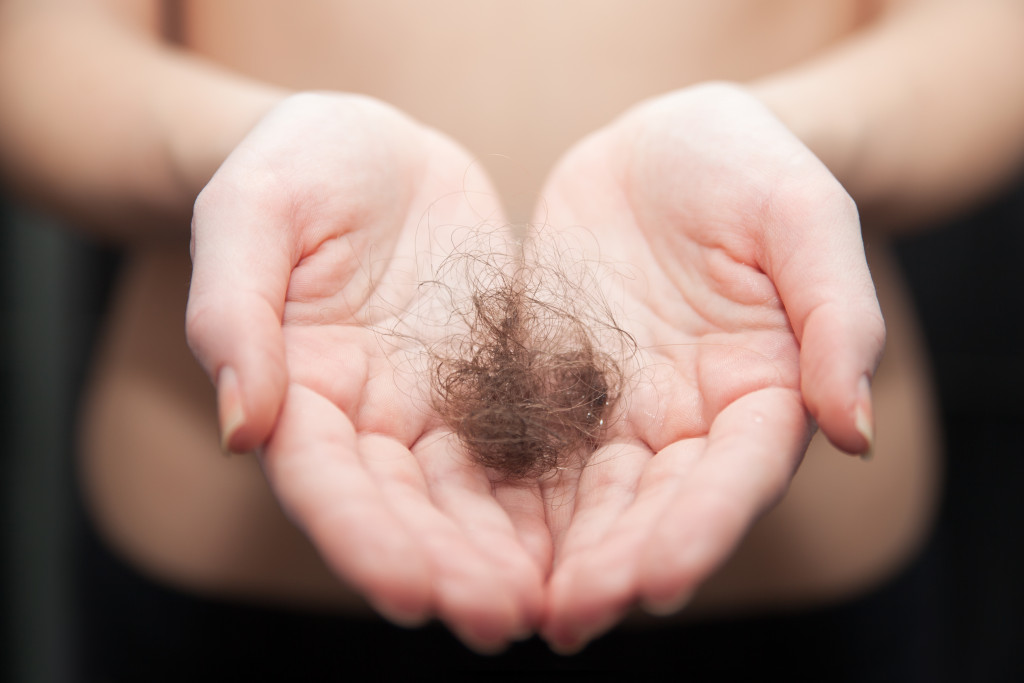- Maintaining a healthy lifestyle, which includes a balanced diet, sufficient sleep, and regular exercise, can prevent hair loss.
- Stress management is crucial as stress hormones can negatively impact hair growth and induce hair loss.
- Protecting your hair from harmful UV rays and avoiding tight hairstyles can prevent damage and loss.
- Use gentle hair care products, avoid over-washing, and avoid harsh chemicals to maintain hair health.
- If hair loss persists, consider professional hair loss treatments, but always consult a healthcare provider first.
Hair loss can be a major concern, especially for people conscious of their appearance. It is a common issue that affects people of all genders, ages, and ethnicities. Hair loss can occur due to various factors such as genetics, hormonal changes, stress, and poor nutrition. While some people may accept hair loss as a natural part of aging, others may be desperate to avoid losing more hair. If you are struggling with hair loss, this post provides tips to avoid losing more hair.
Maintain a Healthy Lifestyle
One of the best ways to avoid hair loss is to maintain a healthy lifestyle. A healthy lifestyle comprises the following:
Eating a balanced diet
A protein-rich diet with fruits and vegetables provides the nutrients to promote hair growth and prevent hair loss. Many vitamins and minerals are essential for hair health, especially Vitamin A, B-complex, C, E, copper, zinc, and iron. Thus, ensuring that your diet includes foods rich in these nutrients is essential.

Getting enough sleep
When you get enough sleep, it helps reduce stress levels and boosts the immune system. This reduces the chances of hair loss due to hormonal changes or a weakened immune system.
Avoiding smoking and alcohol
Smoking and excessive consumption of alcohol can cause damage to the hair follicles and weaken them, leading to hair loss. It is advisable to avoid such habits and keep your body healthy.
Exercising regularly
Exercise also helps improve circulation to the scalp, providing the hair follicles with more oxygen and nutrients, which can improve hair growth and health. By engaging in regular physical activity, you can ensure that your body is healthy and strong, reducing the chances of hair loss.
Reduce Your Stress Levels
Stress is another major factor that contributes to hair loss. When your body is under stress, it produces a hormone called cortisol, which can affect hair growth and lead to hair loss. You must learn to manage your stress levels to avoid losing more hair. There are various stress-reducing techniques that you can try, such as yoga, meditation, deep breathing, and massage.
Avoid Too Much Sun
The UV rays from the sun can damage your hair and scalp, leading to hair loss. So you want to protect your hair against the sun and its harmful rays. Wear a hat or scarf when out in the sun, and use products with SPF to protect your scalp from burning. You should also limit your time in the sun and avoid excessive exposure.
Avoid Hairstyles That Pull on Your Hair
Tight hairstyles such as braids, buns, and ponytails can pull on your hair and cause hair loss. Therefore, you should avoid styling your hair too tightly or use accessories that pull on your hair. Instead, try looser hairstyles that are gentle on your hair, such as a messy bun or a low ponytail. Many of these hairstyles also look stylish, so you can still look fashionable without compromising the health of your hair.

Use Gentle Hair Care Products
The hair care products that you use can also contribute to hair loss. Harsh shampoos, conditioners, and styling products can damage your hair and lead to hair loss. You should use gentle hair care products free from harmful chemicals and sulfates. Also, avoid over-washing your hair, as this can strip away natural oils that keep your hair healthy.
Consider Hair Loss Treatments
If you have tried all the above tips and are still experiencing hair loss, you may consider hair loss treatments. Various treatments can help prevent further hair loss and promote hair growth, such as topical medications, oral medications, and hair restoration surgery. However, consult a qualified healthcare provider before trying hair loss treatments to determine the best course of action for your particular condition.
Hair loss can be frustrating and embarrassing, but it does not have to be a permanent problem. By following the tips outlined above, you can reduce the chances of losing more hair and maintain a healthy and full head of hair. Additionally, if your hair loss is due to an underlying condition, consulting a healthcare professional can help diagnose the cause and guide you toward treatments that are right for you. With the right steps, you can have a head of healthy, beautiful hair.





